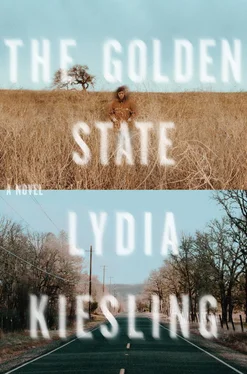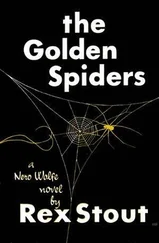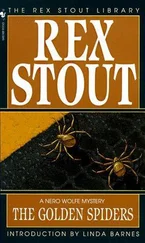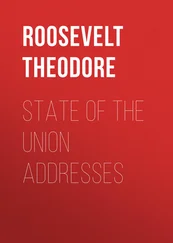Lydia Kiesling - The Golden State
Здесь есть возможность читать онлайн «Lydia Kiesling - The Golden State» весь текст электронной книги совершенно бесплатно (целиком полную версию без сокращений). В некоторых случаях можно слушать аудио, скачать через торрент в формате fb2 и присутствует краткое содержание. Город: New York, Год выпуска: 2018, ISBN: 2018, Издательство: MCD, Жанр: Современная проза, на английском языке. Описание произведения, (предисловие) а так же отзывы посетителей доступны на портале библиотеки ЛибКат.
- Название:The Golden State
- Автор:
- Издательство:MCD
- Жанр:
- Год:2018
- Город:New York
- ISBN:978-0-374-71806-0
- Рейтинг книги:5 / 5. Голосов: 1
-
Избранное:Добавить в избранное
- Отзывы:
-
Ваша оценка:
- 100
- 1
- 2
- 3
- 4
- 5
The Golden State: краткое содержание, описание и аннотация
Предлагаем к чтению аннотацию, описание, краткое содержание или предисловие (зависит от того, что написал сам автор книги «The Golden State»). Если вы не нашли необходимую информацию о книге — напишите в комментариях, мы постараемся отыскать её.
The Golden State — читать онлайн бесплатно полную книгу (весь текст) целиком
Ниже представлен текст книги, разбитый по страницам. Система сохранения места последней прочитанной страницы, позволяет с удобством читать онлайн бесплатно книгу «The Golden State», без необходимости каждый раз заново искать на чём Вы остановились. Поставьте закладку, и сможете в любой момент перейти на страницу, на которой закончили чтение.
Интервал:
Закладка:
We start up the march again and approach the street where we turn up for the church and I picture him on the Kordon, which I think must be the happiest place on earth or was the last time I was there, before Izmir became a way station for desperate people preparing to cross the sea. A wide patch of grass stretches a mile up and down the waterfront of the main part of Izmir, innocuously ugly concrete buildings faced by a strip of cafés and the grass, upon which families and young people and lovers sit and men walk up and down selling pumpkin seeds and collecting empty beer bottles for recycling. It’s obviously not Engin’s fault that he is having a beach day while I’m lugging a sweating toddler to a rural church service—it’s my fault for ensnaring him through marriage in the bureaucratic web of the evil empire, my fault for putting him in a position where his only chance to work was to go back to Turkey, my fault my fault. I know all these things but I am still full of fury.
I should look for a job in Turkey; I have no idea what is out there besides teaching English for which I have zero aptitude and hate doing and which does not pay well unless you do have aptitude, which is as it should be. I don’t want to float like an expat spouse, start some offensive blog, “My Life Among the Turks.” I want to make money, to have money. I don’t want to dig for bargain clothes in a seedy pasaj. And it makes me feel so mournful to think of Honey not speaking English at school, not to mention what they would teach her. Although why should I be suspicious of what she would learn in a Turkish school? God only knows what she would learn at school in Altavista. These are all problematic thoughts to parse at a later time.
We walk the roads off Main Street to get to the church and some of the houses look okay but some of them are obviously hoarder houses, faded curtains pulled up at a corner to show dusty knickknacks and piles of nothing. I wonder if this is some specifically American disease or whether other places have it too. I have never met a Turkish hoarder to my knowledge. As we turn onto Second Street I consider the wisdom of bringing a child Honey’s age to church. It has been probably fifteen years since I attended a church service, around the time of the Chios trip probably, and I strain to imagine what the experience is like vis-à-vis babies. I assume that St. Mark’s follows the liturgy of my youth, although I imagine it will be less well attended by an order of magnitude. On the one hand, it seems unlikely that Honey will be able to cope with the mandate of spending one hour in silence. On the other, who will care if we get up and go?
The church is significantly less prepossessing than I remembered, a small L-shaped ranch building built of cinder blocks like the Golden Spike. The yard is torn up, just cratered dirt with small piles of rubble here and there. It’s on one of the last blocks up against a dirt hill that crests up to a rocky outcrop looking out over the scattered houses of Indian Town. I’m sure it can’t be called that anymore. I wonder if the church is functional and this possibility opens a door to turning back and going home and I desperately want to slip through it. There is a sign on the actual door that I hope says Church Closed but really says Pardon Our Dust so I open the door and it looks as I distantly remember from many years ago. One side of the L formed by the building contains what I think is called the nave, rows of neat wooden pews, all of them empty, leading up to a very respectable little altar area with pulpit flags crosses etc. The sun shines brightly down the aisle through the modest stained glass. The other side of the L is a mingling slash rumpus area with a large table and chairs and an open kitchen toward the back. There are tidy bookshelves lining the room and a bulletin board and a low-lying gray wall-to-wall carpet covers the concrete slab which is perceptible in the balls of your feet. It’s all very nice-looking.
I know, although I don’t know how I know, that for years the priest has been itinerant between three towns in the county, since the number of Episcopalians these days is such that one rural congregation could never support his care and feeding. The Mormons seem busy according to their parking lot, and the evangelicals too, out there on the road between Altavista and a hamlet called, incredibly, Brother’s Keeper. There appears to be no one else in the building. I knew the number had dwindled but I had not considered the possibility that we would be the only people here.
I see a basket on a stand where you can write down people to pray for and I write my mom and my dad on one slip of paper feeling sentimental, and I put them in the basket, and then I write Ellery Simpson and family and Maryam Khoury on another slip and put that in the basket and I shake my head to disperse the stinging fog generated by this act and also feel guilty that I haven’t thought of Ellery and Maryam for a number of hours. I squat down unclick the Ergo and gently lower Honey to the floor and she takes a few investigative steps and then tears off down the aisle, tripping over her own feet and falling headlong onto the carpeted concrete. She wails and I rush to pick her up and as I’m patting soothing stroking squeezing the hot head and sticky hands I hear the sound of a toilet flushing and a door opening and from beside the kitchen a tall, rather stooped brown-haired man in his forties emerges and visibly starts.
“Hello” he says. “Hi there,” I say brightly, as if it were the most normal thing in the world to be attending a Sunday church service in an empty room. “I’m Daphne,” I say, extending my hand. “Benny,” he says, and shakes. I proffer up Honey, who gives him her signature and highly alarming come-hither look of downcast eyes sweeping lashes tucked chin and perfectly timed look up, it’s actually gross how cute and coy it is—nazlı, the word is in Turkish. “This is Honey.” “Hi there, little Honey,” he says and gingerly grasps two of her fingers. “Are… we going to be the only ones here,” I ask him. “Well, usually there are seven of us,” he says. At this the front door opens and a slightly ruddy wren of a woman rushes in, clad in flowing skirts and sleeves. “Everyone is sick,” she says, answering a question she didn’t hear me ask. “Randy is sick and can’t do the music, the Gates girls got heat stroke at the fairground yesterday, and I don’t know who-all.” “Hi,” she says and looks at me. “What a delightful sight the two of you are.” Honey begins kicking and I put her down to tear around again. “Yes, hi, well, I’m not sure how she’ll do. It’s the first time she’s been to church,” I say ruefully, as though our attendance were recorded in a central database. “Well that’s even better, then,” the woman says. “It’s a blessing to have you both. Do I know you?” I say my name and the name of my grandmother and she nods. “Yep, knew your lovely grandmother,” the first person I’ve met, I think, who has remembered her. “My name is Sarah and I’m our Worship Leader when Father H is out.” Two other women walk into the church, not old, but one walks with a cane. We are all white in the room. “Gladys, Mary,” Sarah says. “I’m thinking this is going to be it today.” I look at the rows and estimate that they could comfortably accommodate eighty people. Benny, Gladys, Mary, and I shuffle toward the pews and distribute ourselves as evenly as we can, Benny in one quadrant, Honey and I in another, and Mary and Gladys in a third, with the fourth quadrant empty. It looks like a plague has come through and we are the last people on earth and we are praying for deliverance.
Honey has toddled off and is squatting near a rack of ecclesiastical magazines at the back of the rumpus area and I think that might work and I move back to the second-to-last pew so I can keep an eye on both the pulpit and the child. The nave is lined with big open windows that make the building seem more spacious than it is. It is very clean and bright and airy, an illusion of bigness within relative to the squat brown building without. In my pew I set the Ergo the diaper bag the liturgy printout and a pencil I find in the bag. “Daphne,” Sarah says to me from the pulpit. “If you could just get behind you to the keyboard and press Play on the digital box.” I find the keyboard and a little box on it with a screen and buttons and I press the one that says “Play.” The canned organ of the processional sounds through the air and we assembled begin to sing. Honey pauses for a moment to marvel at us then runs down the aisle and climbs the stairs to the altar area. I run after her and scoop her up whisper “sorry” as though there were a hundred other people in the room rather than four and we trot down the aisle back to my pew where I put her up in a seated position and hand her the liturgy and the pencil and she stands on the bench and starts tearing holes in the liturgy with the pencil.
Читать дальшеИнтервал:
Закладка:
Похожие книги на «The Golden State»
Представляем Вашему вниманию похожие книги на «The Golden State» списком для выбора. Мы отобрали схожую по названию и смыслу литературу в надежде предоставить читателям больше вариантов отыскать новые, интересные, ещё непрочитанные произведения.
Обсуждение, отзывы о книге «The Golden State» и просто собственные мнения читателей. Оставьте ваши комментарии, напишите, что Вы думаете о произведении, его смысле или главных героях. Укажите что конкретно понравилось, а что нет, и почему Вы так считаете.












